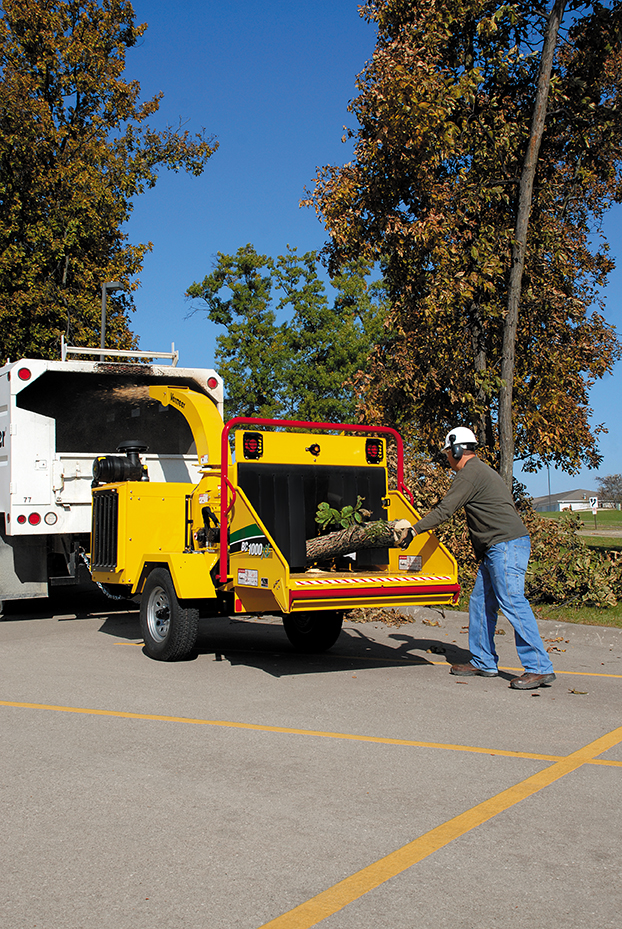When purchasing a chipper, pay attention to the factors that can impact the resale value. For example, look for a strong, well-built product that can easily handle material without putting undue stress on the machine. Enhanced safety features, local dealer support and readily available parts are important considerations.
“At the time you buy a new chipper, you should be thinking about the features that will help you sell it in the future,” says Stu Senska, sales manager with Vermeer Midwest in Aurora, Ill. “For example, our optional winch, which allows the operator to move heavy logs, will cost you initially. However, at trade-in time you may receive 10 to 15 percent more for your chipper than one without a winch.”
Initial reaction
The general overall condition of a used chipper is the first thing dealers evaluate.
“The appearance of the chipper is going to affect what people think about its value,” says Rick Shepherd, service manager for Vermeer Pacific in Fontana, Calif. “If the machine looks good and clean, the perception is that it has been well taken care of. If it is dented and dirty, a red flag will go up. That’s even before we take a close look at areas where maintenance may have been neglected, such as bearings and hoses.”
Daily maintenance items, such as lubrication of the bearings, clutch adjustment and checking the air cleaner, go a long way toward helping to receive a higher resale value. If not checked, they can turn into a costly situation.
Safety first
Equipment dealers should make sure all safety components are functioning properly before selling a chipper received on a trade.
“It could be a small, inexpensive item such as replacing safety decals,” says Shepherd. “Or it could be an expensive brake job or replacement of a chipper component. The value of any chipper that comes in with safety issues is going to have its value adjusted so the costs of those repairs are covered.”
Maintenance history
A used chipper is worth more if the owner has a good set of maintenance records. If the machine has been serviced by the dealer, the maintenance history will be readily available. Otherwise, keeping records such as oil changes, similar to what you would do for an automobile, can be valuable as well.
“Maintenance records help the dealer resell the chipper because it gives the prospective buyer a higher level of confidence that the machine has been properly cared for,” says Shepherd. Regular maintenance will take care of most of the issues that lower the resale value, according to Shepherd. His advice: Follow the maintenance manual in regard to the recommended service schedule, and repair things as you go along instead of waiting until trade-in time.
“Some chipper owners won’t even think about repairs until something breaks; others stay on a regular preventive maintenance schedule,” says Senska. “Neglect the machine and it will definitely come back to haunt you. Take care of it and your chipper is going to be in better shape and so will your pocketbook when it is time to sell or trade.”
